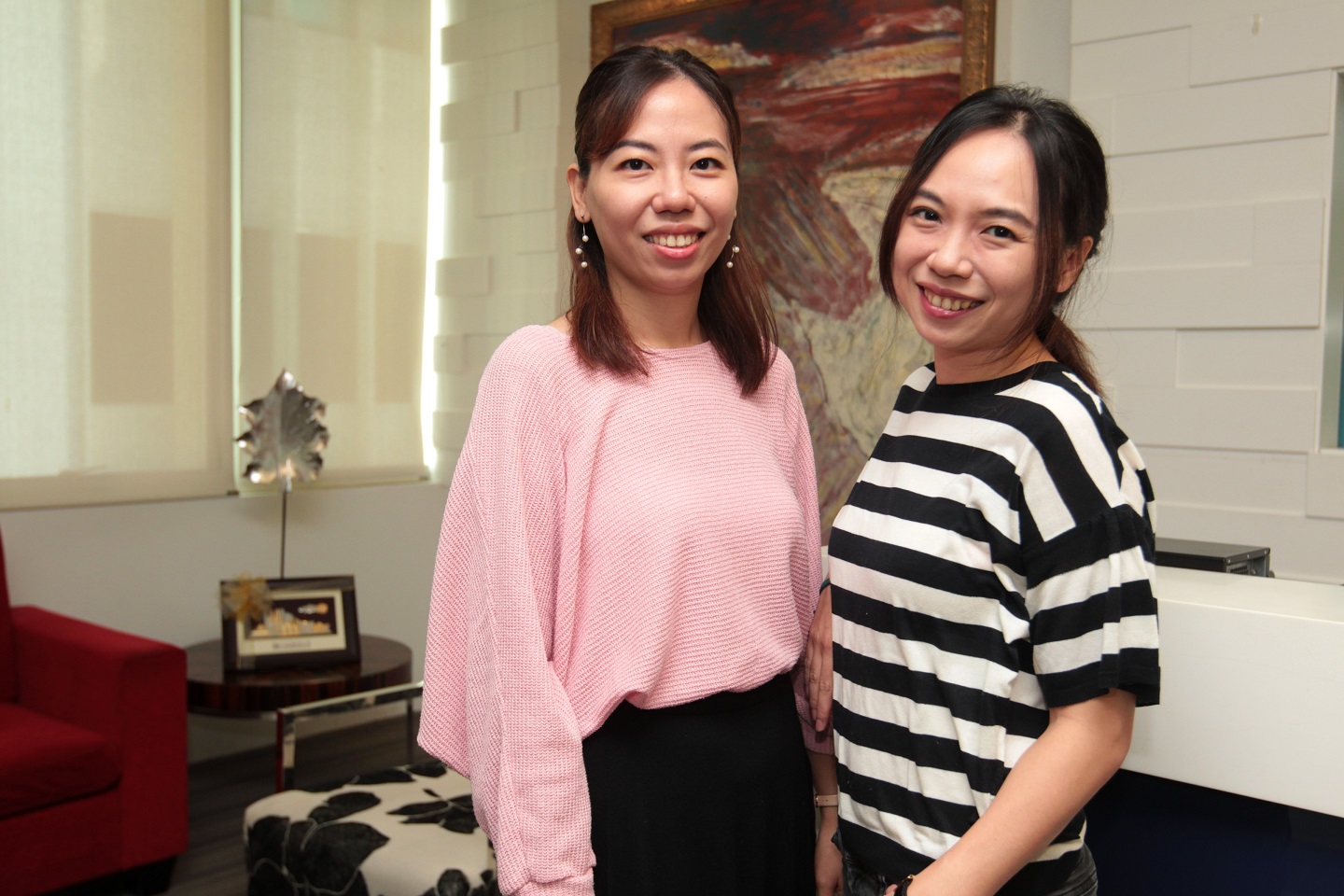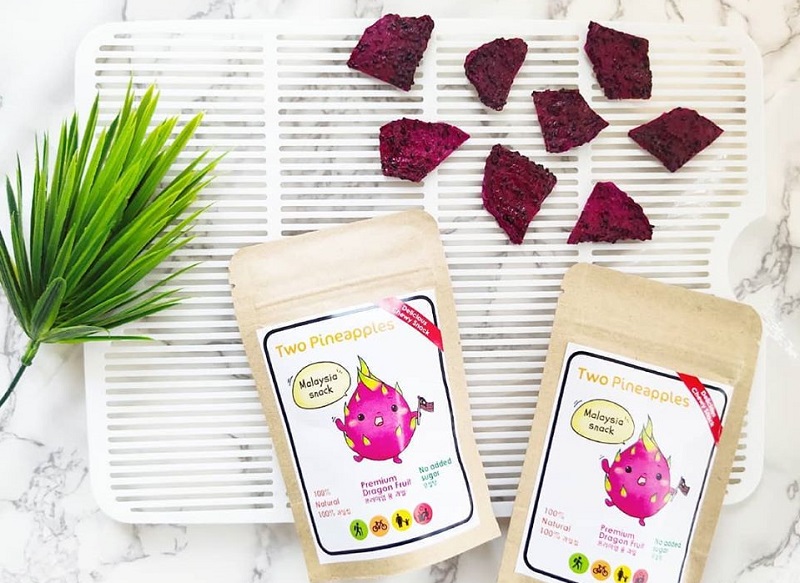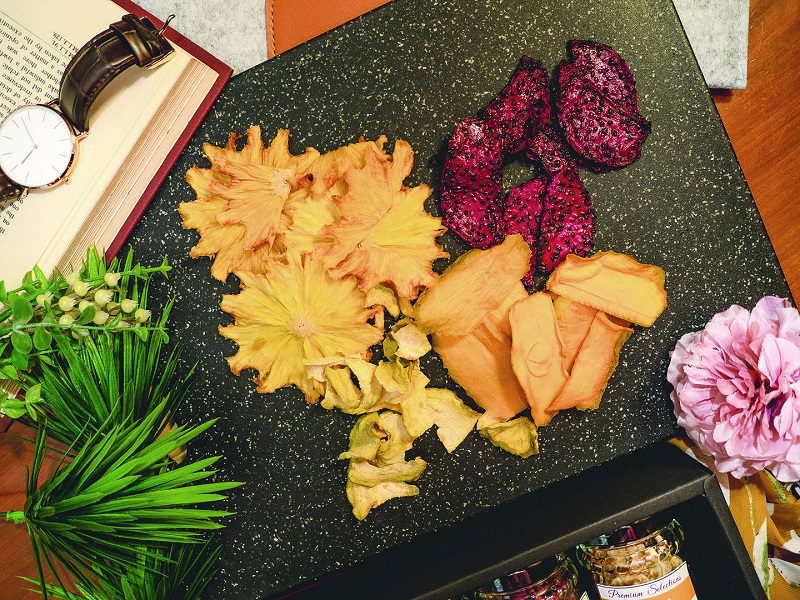
Estelle (left) and Hannah Lam (Photo: Shahrin Yahya/The Edge)
For sisters Estelle and Hannah Lam, family has always come first. “I planned a lot of things when I was pregnant, like when I would go back to work. But once my baby was born, I felt like I needed to dedicate my time to her, at least for the first few years,” says Estelle. After a while, she wanted to re-enter the working world but finding a job that was flexible in her field of study — food science and technology — was almost impossible.
It was around this time that her sister Hannah began planning her future. With her wedding around the corner and a busy job in medical science, Hannah had a few decisions to make. “I saw how [Estelle] looked after her child and thought, ‘How do I do this?’ I was wondering how I could cope with a baby and still work in my company. So, I started asking myself, ‘Should I have my own business?’ Maybe then I would have more flexibility in taking care of a child and working at the same time,” she says.
With her wealth of knowledge in nutrition, Estelle began exploring healthy snack ideas for her daughter. When she experimented with dehydrated pineapple slices, inspiration struck. “It caught our attention. I’m not really a foodie, to be honest, so for something to catch my attention, it must be really nice,” adds Hannah, and the idea for The Two Pineapples was born.
In 2017, the sisters began their research and development, perfecting the recipe and method for their dried pineapples with the overarching aim of encouraging a healthy lifestyle. Their first test market was a bazaar at an international school and based on the feedback they received at this and subsequent events, they fine-tuned their products and finalised their packaging. Last January, they introduced their brand and released their products.

The sisters then branched out organically into other fruits. Initially, they had to hunt down pineapple farmers, test out the fruits and actively get more contacts. They really put themselves out there and people began approaching them, recommending farmers who grew other fruits of high quality. “We all know that fresh is still the best … but our aim is to retain as much of the nutritional value as possible,” says Estelle. Their current range includes dried dragon fruit, star fruit, lemon and guava.
One of their main struggles has been to ensure that their quality is up to scratch while dealing with multiple variables that are out of their control, including the weather, harvest quality, seasonality and. Still, sourcing fresh fruits with consistent quality and finding reliable farmers are only a small fraction of the sisters’ workload.
The Two Pineapples has quite an extensive production process, with steps that differ slightly according to the type of fruit. In the case of their pineapples, there was a lot of wastage initially. “We felt so bad about throwing away the skin and peel, so we gave them to urban farms to use as compost. Then, as our process schedule began picking up, we had no time to deliver it. I started reading up and decided to make my own enzyme, and I went for some classes,” explains Estelle. By fermenting the skins, they created an enzyme that is used to clean the fruits and remove any residue of pesticides and dirt. Any extra is given to urban farmers.
After the enzyme treatment, they use baking soda or salt rub to further clean the fruits. “This is particularly for star fruit, lemons and guavas. You have to be a bit more thorough with those because you consume their skin,” says Estelle. The entire cleaning process can take up to a few days. For pineapples, there is an additional step. “We remove the part that causes numbness in your tongue. We can’t remove it 100% as it’s hard to see it all, but we try our very best,” she adds.
two_pineapples-8.jpg

Finally, they get to dehydrating. Starting out with a household dehydrator was fine when the sisters were testing out the market, but they needed something more when demand increased. “Now, we have a stainless steel industrial-grade dehydrator. Having it meant that we had to do our R&D again because it was on a different scale. That took us three months,” says Estelle. While some might choose to crank up the heat for a speedy product, Estelle and Hannah opted for a longer heating period to ensure that the fruits retain as much nutrients as possible.
The Two Pineapples’ delicious snacks have no preservatives, added sugar or chemicals, making them child-friendly. To encourage better snacking habits and eating in moderation, the dehydrated fruits have a chewy texture to prevent one from over-munching, like one would with chips.
The sisters set up a company called RiAi — a combination of their parents’ names as a tribute to their uncompromising support — as an umbrella for their ventures, including The Two Pineapples. As they feel strongly about supporting other local artisans, RiAi’s portfolio includes handcrafted soaps and body scrubs.
After showcasing their wares at bazaars last year, the sisters shifted their attention to events, pushing their treats as tasty door gifts or ideal additions to the food table.
“When people go to Thailand, others advise them to buy dried fruits, but what about Malaysia? We have an abundance of fruits as well,” says Hannah. “We hope that one day, people will say, ‘I went to Malaysia and I bought their pineapples’,” Estelle chips in. In the future, they hope to expand their snack range to include vegetables — a palatable way to get more greens in one’s diet.
This article first appeared on Oct 28, 2019 in The Edge Malaysia.


